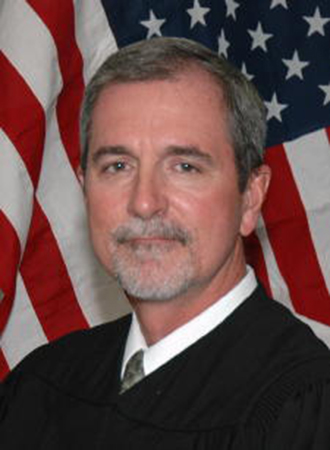Judicial Administration

Office of the Chief Judge
Chief Judge Frank Porter succeeds the Honorable Michael T. McHugh, who has served as Chief Judge since 2015. Chief Judges are responsible for ensuring the circuit court and county court administrations run smoothly and efficiently. Additionally, the Chief Judge enters administrative orders to oversee the court's daily operations. A Chief Judge is also in charge of assigning judges, controlling dockets, regulating the use of courtrooms, considering statistical data of cases, and promoting the prompt and efficient administration of justice.
Judge Porter has been a Twentieth Circuit Court Judge since he was appointed by former Governor Jeb Bush as a Lee County Judge in 2001. He was appointed to the Circuit Court bench two years later.
Born and raised in Lee County, Judge Porter graduated from Riverdale High School in Fort Myers in 1979. He received his Associates Degree from Edison Community College before earning his Bachelors from East Tennessee State University. In 1985, he graduated from the Cumberland School of Law at Samford University and was admitted to The Florida Bar that October at age 22. He went on to work in private practice until his appointment in 2001.
His first Circuit Court assignment was the Family and Dependency docket in Charlotte County. He was then assigned to the Felony Division. While in Charlotte County, Judge Porter was the Charlotte Administrative Judge and the Deputy Chief Judge for the Circuit from 2005 to 2007
Judge Porter returned to Lee County in 2009 and is currently assigned to the Felony Division. He previously served in the Family Law and Civil Divisions. He has been the Felony Administrative Judge since 2013 and also was again the Deputy Chief Judge for the Circuit from 2011 to 2015.
Outside of the courtroom, Judge Porter was appointed by the Chief Justice of the Florida Supreme Court to serve as a Mentor Judge. He has also been a guest lecturer at Florida Gulf Coast University, Florida SouthWestern State College, and several local high schools.
Judge Porter is married to Lee Circuit Judge Lisa S Porter. He has two adult children, a daughter-in-law, and a grandson.
Senior Judges
After retirement, judges may seek approval from the Supreme Court of Florida to serve as senior judges on temporary assignment to hear, conduct and try cases for the court. Senior judges of the Twentieth Judicial Circuit assist the judiciary by serving in judicial sections which are temporarily vacant and presiding over a variety of cases heard in the circuit and county courts.
Magistrates
Magistrates are quasi-judicial officers of the court who conduct various court events (trial, evidentiary hearings, and case management) to assist the judiciary in moving cases efficiently and timely through the court system. Magistrates are attorneys who have been appointed by the Chief Judge and given the authority to hear certain matters upon referral from a presiding civil or family law judge. Judges refer specific issues, not entire cases, to a magistrate who will hear the matter and make a Report and Recommendation to the Court. After review of the Report and Recommendation the presiding judge may issue an Order Adopting it.
Magistrates are limited in the scope of work they can perform; they cannot preside over jury trials or criminal matters and they cannot sign orders. Additionally, if a parties do not want their matter heard by a magistrate they can file a timely objection to the magistrate and have a judge preside over their hearings.
Child Support Enforcement Hearing Officers
Child Support Enforcement Hearing Officers are quasi-judicial officers of the court who preside over Child Support matters only. They are attorneys appointed by the Chief Judge and employed by the Administrative Office of the Courts (AOC) to preside over Title IV-D cases only.